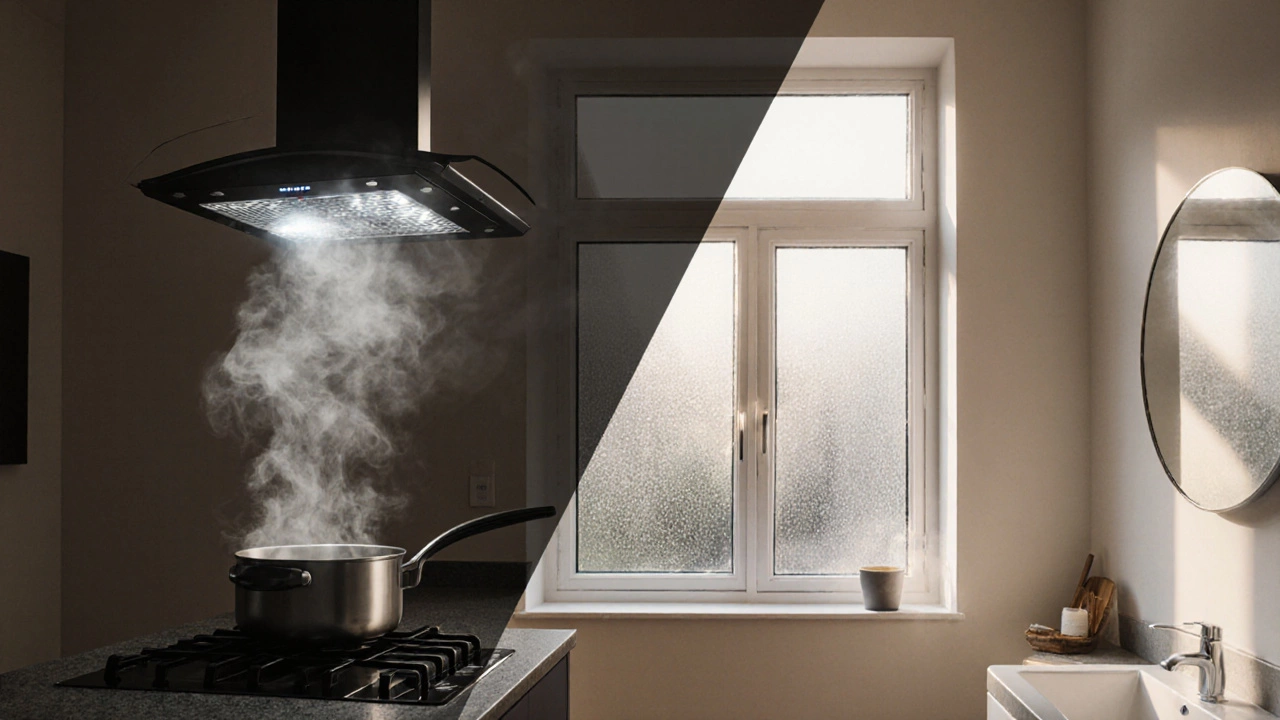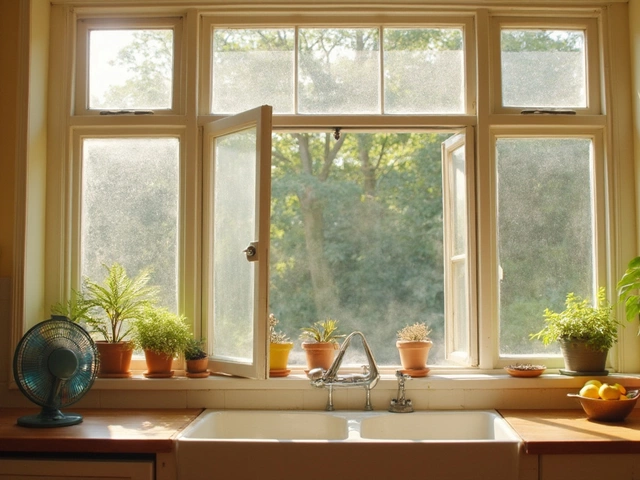When dealing with Mold Prevention, the practice of stopping mold growth by managing moisture, airflow, and cleanliness inside a house. Also known as mold control, it protects health, preserves property value, and keeps appliances running smoothly.
One of the biggest allies of mold prevention is Humidity Control, the process of keeping indoor relative humidity between 30% and 50% using dehumidifiers, exhaust fans, and proper sealing. When humidity spikes above this range, mold spores find the perfect breeding ground. By measuring humidity with a simple hygrometer and reacting quickly—turning on a dehumidifier or fixing a leak—you cut the moisture supply that mold needs. This directly supports the triple “Mold prevention requires humidity control.”
Even with perfect humidity, stagnant air can let damp spots linger. That's where Home Ventilation, the system of moving fresh outdoor air inside and stale indoor air out through windows, vents, and extractor fans steps in. Good ventilation lowers localized moisture, dries wet areas faster, and spreads air evenly. In practice, opening a kitchen window while cooking or installing a vent above a dryer keeps the indoor environment hostile to mold. This creates the link “Proper ventilation improves indoor air quality, which in turn supports mold prevention.”
Speaking of air, Indoor Air Quality, the overall condition of the air inside a building, measured by pollutants, allergens, and moisture levels is a broader indicator of how well your home resists mold. Poor air quality often signals excess moisture, mold spores, or dirty appliance exhausts. By using air purifiers, regularly cleaning HVAC filters, and ensuring dryer vents discharge outside, you boost air quality and deny mold the environment it craves. This establishes the connection “Indoor air quality influences mold prevention outcomes.”
All the previous steps tie back to a surprisingly common factor: Appliance Maintenance, regular inspection, cleaning, and repair of home appliances that handle water or generate heat, such as washing machines, dishwashers, and dryers. A leaking washing machine, a clogged dryer lint filter, or a faulty refrigerator door seal can flood surrounding walls with hidden moisture. When you schedule routine checks, clear lint traps, and repair leaks promptly, you remove hidden water sources that would otherwise feed mold. This illustrates the relationship “Appliance maintenance supports mold prevention by eliminating hidden moisture sources.”
Start by monitoring humidity levels in bathrooms, kitchens, and laundry rooms. Keep a hygrometer handy and aim for the 30‑50% sweet spot. Next, improve airflow: use extractor fans when cooking, showering, or running the dryer, and consider a whole‑house ventilation system if your property is tightly sealed.
Don’t forget to maintain your appliances. Clean dryer vents every few months, check washing machine hoses for cracks, and ensure refrigerators seal tightly. Finally, keep an eye on indoor air quality by swapping HVAC filters regularly and using a simple air purifier in rooms prone to dampness.
By combining these actions—humidity control, ventilation, air‑quality checks, and diligent appliance care—you create a multi‑layered defense that makes mold growth extremely unlikely. Below you’ll find a collection of articles that dive deeper into each of these areas, offering step‑by‑step guides, cost breakdowns, and expert tips to keep your home fresh and mold‑free.

Explore whether you can live without an extractor fan, covering UK regulations, health risks, passive ventilation tricks, dehumidifier use, and when a mechanical fan becomes essential.

Maintaining a boiler goes beyond just an annual check-up. Regular maintenance ensures that your heating system runs efficiently, prolonging its lifespan and saving money on repairs. This article delves into necessary care tips, signs indicating a need for professional help, and actions homeowners can take to keep their boilers in top shape. Understanding the importance of each maintenance task can help prevent unexpected breakdowns, especially during colder months.

Thinking about swapping out your extractor fan? This article breaks down when you really need a licensed electrician and when you might handle it yourself. Learn what risks and rules are involved, plus some practical tips for a painless install. Get clear answers on costs, permits, and what can go wrong if you take shortcuts. If you want fast, safe, and lasting results, this guide walks you through everything step-by-step.

Stuck with a broken extractor fan and not sure what to do next? This article gives you practical ideas for improving air flow in your kitchen or bathroom when the fan is out of action. Learn about effective ways to keep humidity, smells, and condensation under control using simple tools and habits. Discover the pros and cons of each alternative solution so you can pick what fits your place best. Skip the stress and get the facts on dealing with bad ventilation the easy way.

When it comes to microwaves, understanding their lifespan is crucial for homeowners looking to make informed decisions about maintenance and replacement. This article delves into the essential factors that affect the longevity of microwaves, offering practical tips on extending their lifespan and recognizing when it's time for a new one. You'll learn about common signs of wear and tear, the importance of proper usage, and how regular servicing can enhance performance. Discover how to keep your microwave running efficiently and what to do when repairs are inevitable.

Extractor fans play a crucial role in maintaining the air quality of your home, yet often go unnoticed until issues arise. Regular servicing of extractor fans can prevent malfunction, improve efficiency, and extend the lifespan of the device. This article explores the importance of servicing extractor fans, signs that show when a service might be needed, and provides maintenance tips to keep these devices in tip-top condition. Learn how a well-maintained extractor fan can contribute to a healthier living environment.